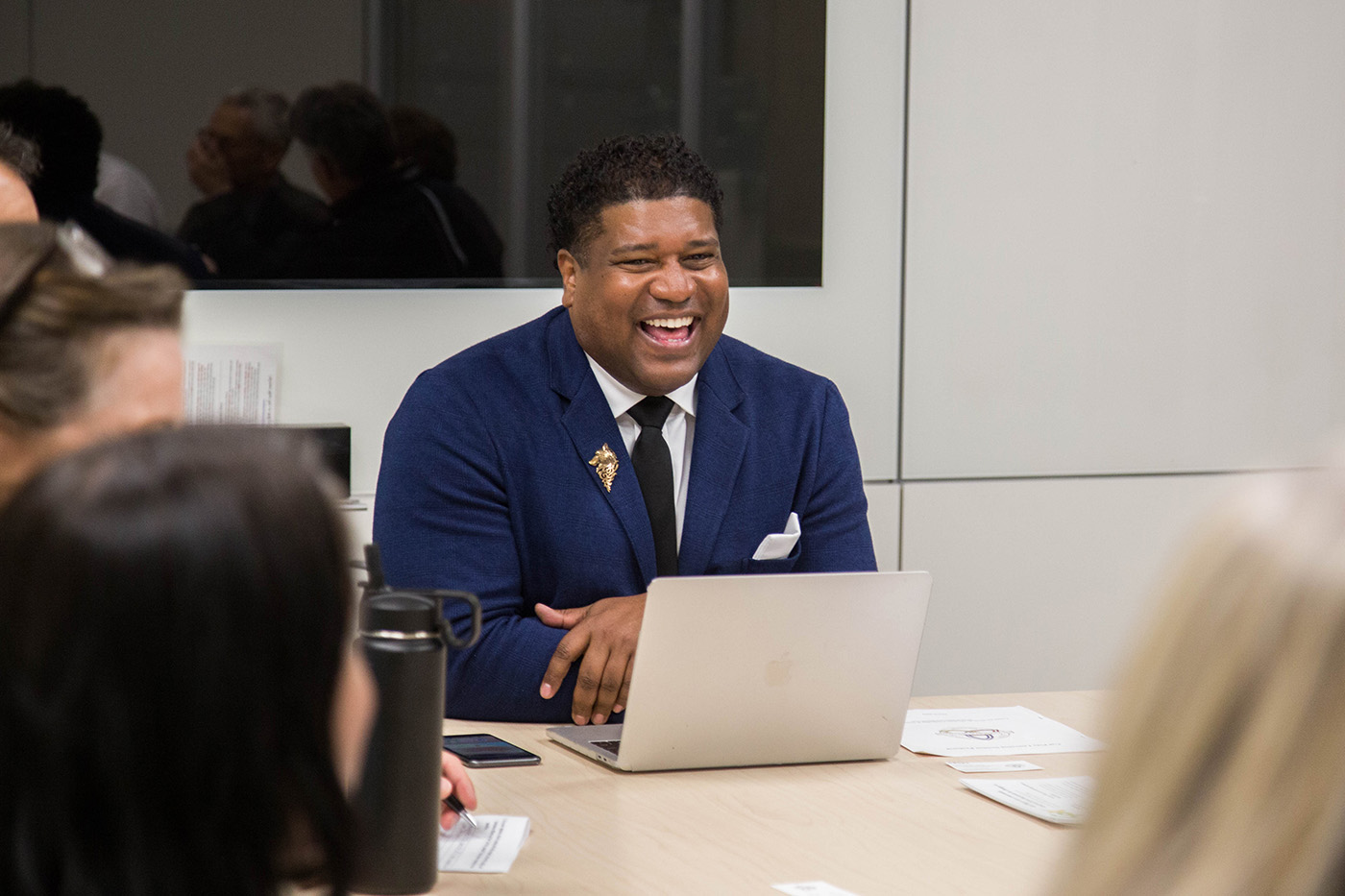This is the last week students, faculty and staff can participate in the Cal Poly Experience (CPX) survey. The survey is a part of the university’s $234,000 partnership with diversity specialist Damon Williams and his Center for Strategic Diversity Leadership and Social Innovation Team, which began in February 2019.
Williams will analyze the survey results with his team and form an action plan based on the results. The last campus climate survey in 2014 cost the university $55,000, but the third party that issued the survey did not help Cal Poly create an action plan around the data.
“Cal Poly’s investment in this work — including its partnership with Damon Williams — is a testament to the high priority it places on diversity, equity and inclusion,” University Spokesperson Cynthia Lambert wrote in an email to Mustang News.
Why Williams?
Vice President of Diversity and Inclusion Jozi De Leon and Interim Associate Vice President for Diversity and Inclusion Julie A. Garcia both participated in William’s National Inclusive Excellence Leadership Academy over Summer 2018. The five-week online leadership program was designed to help participants develop strategic leadership skills with diversity in mind.
Garcia said Williams’ academy and previous work makes him qualified to help Cal Poly.
“Williams and his team are thought to be the creme of the crop of doing diversity and inclusion work,” Garcia said. “He has … written many books on the topic. He also already has a longstanding relationship with Cal Poly.”
Williams’ website states that he has worked at more than 1,000 universities, companies, foundations, and government agencies. Garcia and De Leon were not able to provide specific results of Williams’ work on diversity, but they said they feel hopeful about his ability to help create real change on campus.
“He’s not just going to deliver us a survey, which many consultants do,” De Leon said. “He is willing to go much further and actually develop recommendations, an action plan, train individuals to deliver that action plan and help us with a scorecard that will allow us to monitor our progress.”
Why this survey?
The CPX survey is based on metrics developed by researchers at the University of Michigan to measure campus climate at universities. Garcia said the survey is thought to be valid, meaning it accurately measures what it is supposed to measure.
The survey is supposed to help capture the different experiences of individuals on campus and measure how metrics like race, gender, sexual orientation, socioeconomic status and religion can affect experiences at Cal Poly.
“We look at those metrics and see what those different experiences are tied to, and see if they are engaging in different resources or behaviors,” Garcia said. “And we can compare it to other data we have, like graduation rates.”
Along with collecting the survey responses, Williams held 50 listening sessions on campus to hear different Cal Poly experiences firsthand. More than 600 people attended the sessions.
What happens after the survey?
The university’s last campus climate survey was five years ago, with a response rate of less than 30 percent. According to a university news release, more than 20 percent of the Cal Poly community said they experienced some form of exclusionary treatment on campus.
Administrators said the low response rate for the 2014 survey limited what the data gathered could be used for. However, De Leon said the survey still helped drive change on campus, including elevating her role from a director to vice president position and inspiring the creation of Cal Poly’s Believe, Educate & Empower, Advocate, Collaborate, Nurture (BEACoN) mentoring program.
De Leon said, from her conversations with Williams, she believes part of the action plan will be bringing current Cal Poly diversity initiatives together in a more impactful way.
The initial survey results are expected to be released in June 2019. Williams is expected to deliver a more detailed analysis of the results.
How many students are actually taking the survey?
De Leon said she is hoping for a high response rate to the CPX survey.
“The most immediate goal is really getting those numbers and getting people responding as much as possible,” De Leon said. “Especially the representation of students from our underrepresented groups is really critical. If we could get 100 percent of those students responding — that would be success for me.”
Public health sophomore Ellie Rabin said she participated in the survey because she wanted to have her voice heard as a Jewish student on campus. Rabin said she hopes the survey results are put to good use.
“I hope that there is a different direction they go in, because I feel like a lot of the diversity and inclusion is drilled into us at this school, but it hasn’t changed that much,” Rabin said.
Liberal studies senior Charlotte Stewart said she is not planning on taking the survey because she does not think it will create real change.
“I feel like a lot of people aren’t taking it,” Stewart said. “I just see the emails and think, I’ll take it later, and keep putting it off. Especially since it’s through email, it’s really easy to ignore.”
Software engineering sophomore Dylan Cooper took the survey and said he believes the results could be valuable for the Cal Poly community.
“I think it is a good way to get a lot of different opinions,” Cooper said. “A lot of times when something big happens on campus you only really get the voices from people who speak out, so with the survey you’re able to get a much broader idea of how everyone feels.”
How to take the CPX survey
Students, faculty and staff can take the survey through the CPX emails sent by Williams at noreply@checkbox.com. Students can also take the survey through the Cal Poly portal. The survey will close May 7.
Editor’s note: This article has been updated to reflect Williams’ work with companies, foundations, and government agencies as well as universities.

